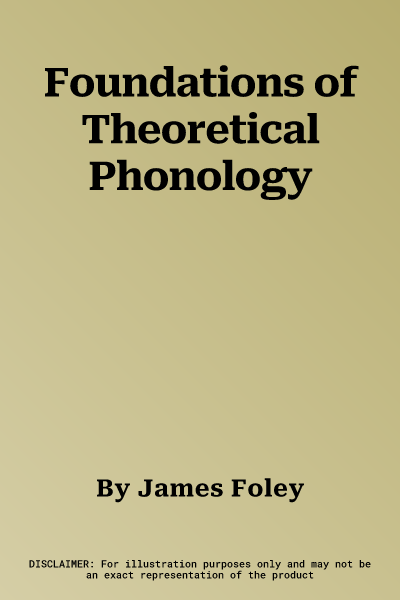James Foley
(Author)Foundations of Theoretical PhonologyHardcover, 30 December 1977

Temporarily out of stock
Free Delivery
Cash on Delivery
15 Days
Free Returns
Secure Checkout

Part of Series
Cambridge Studies in Linguistics
Part of Series
Cambridge Bible Commentary: New English Bible
Part of Series
Cambridge Studies in Linguistics (Hardcover)
Print Length
160 pages
Language
English
Publisher
Cambridge University Press
Date Published
30 Dec 1977
ISBN-10
0521214661
ISBN-13
9780521214667
Description
Product Details
Author:
Book Format:
Hardcover
Date Published:
30 December 1977
ISBN-10:
0521214661
ISBN-13:
9780521214667
Language:
English
Location:
Cambridge
Pages:
160
Publisher: